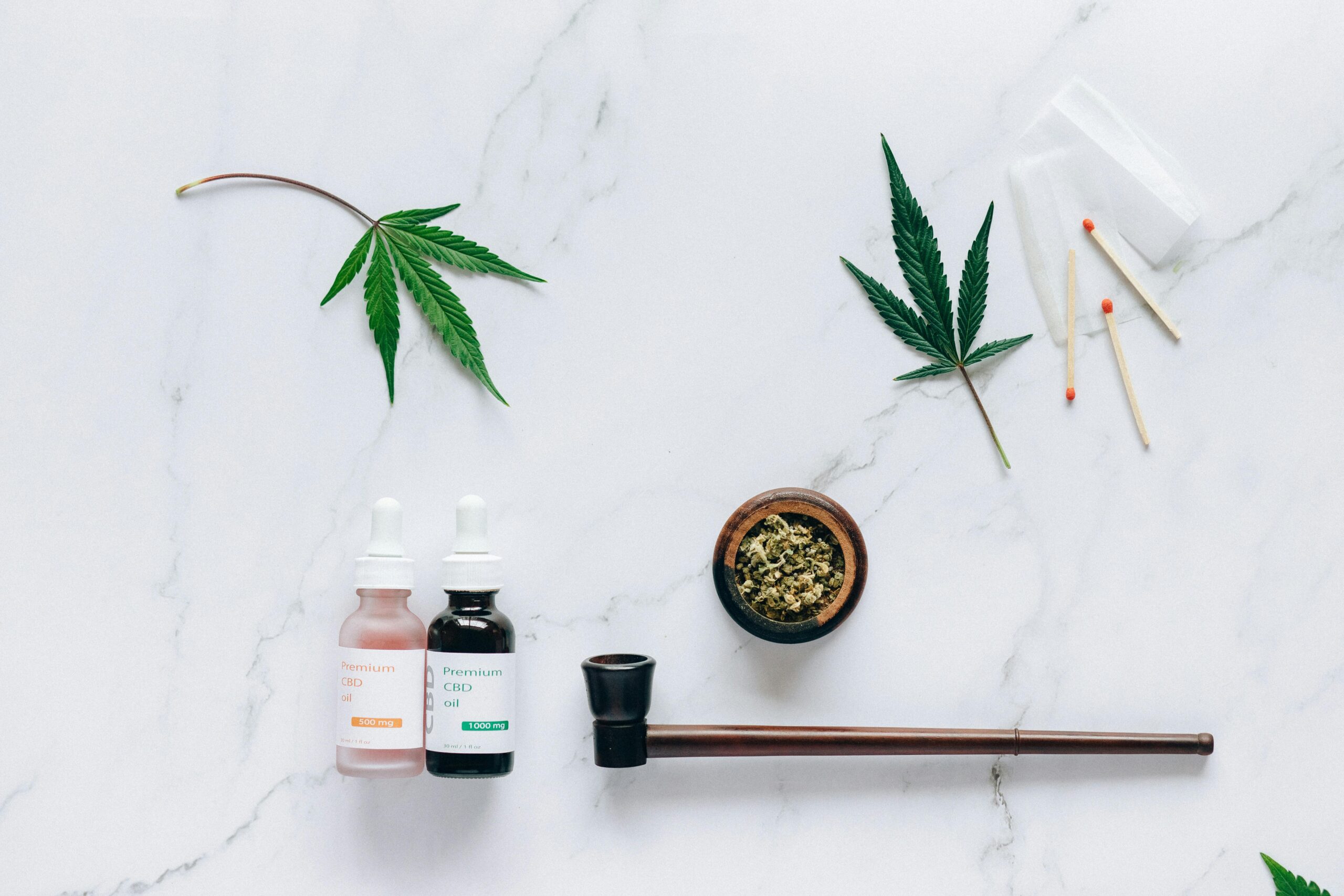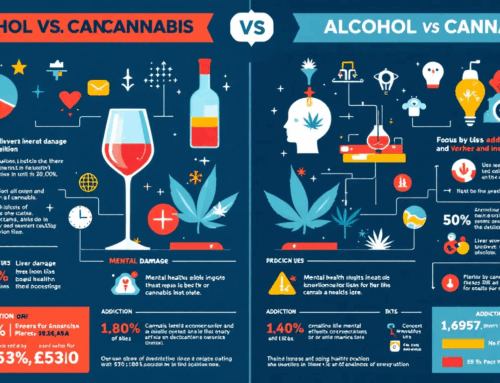Many people turn to medical cannabis to help ease a variety of conditions, such as chronic pain and depression. It can be an excellent option for relief! However, just like any medication, it’s good to remember that there may be some side effects of medical marijuana. While the benefits of medical marijuana usually outweigh any downsides, being informed about the potential risks can help you feel more prepared. Understanding what to expect can make it easier to manage any side effects if they come up.
Common Side Effects of Medical Marijuana
Before discussing the side effects of medical marijuana, it’s important to remember that everyone responds differently to medication. Some people may have specific side effects, while others may not feel them at all. The intensity of side effects may differ between individuals. Common side effects of medical marijuana include:
Dry Mouth
Xerostomia, commonly known as dry mouth or cottonmouth, is something that can happen to people who use cannabis. This occurs because the compounds in marijuana interact with brain receptors that help produce saliva, leading to a bit of a decrease in saliva production. While it’s usually nothing serious, having a dry mouth can increase the chance of gum disease, tooth decay, plaque buildup, and even canker sores.
To help keep your mouth feeling fresh, make sure to drink plenty of water and try to limit your caffeine intake. Sucking on hard candy or chewing sugarless gum can also give your saliva production a little boost. If you’re looking for extra relief, mouthwashes are explicitly designed to help with dry mouth. And remember, breathing through your nose instead of your mouth can make a difference!
Dry Eyes
One common side effect of medical cannabis is dry eyes. This happens because the compounds in cannabis can affect the systems in our body that control moisture production. When activated, these systems might reduce the amount of tears produced, leading to red, irritated, or itchy eyes. To help relieve dry eyes, you can use moisturizing eye drops. Also, blinking more often and giving your eyes a break may provide some comfort.
Fatigue
Feeling a bit tired or sleepy after using medical marijuana is something many people experience. This happens because the compounds in cannabis interact with the brain’s sleep-regulating receptors. While some folks might appreciate this effect, especially if they struggle with insomnia, it might not be everyone’s cup of tea.
It’s also worth noting that different strains of medical cannabis can affect you in various ways. Some might lead to more fatigue than others. If you’re worried about feeling sleepy, don’t hesitate to chat with the friendly professionals at your medical marijuana dispensary. They can help you pick a strain that is less likely to make you drowsy!
Dizziness
Some people might feel a bit dizzy after using medical cannabis, and that’s okay because It could be due to how the cannabis compounds interact with brain receptors that help with balance. A few people also mention experiencing vertigo. If you do feel dizzy, it can help to drink plenty of fluids and take your time when getting up from a seated or lying position. Just remember to be gentle with yourself!
Slow Reaction Time
If you use medical cannabis, remember it might slow your reaction time. To stay safe, avoid activities that need quick reflexes, like driving or operating machinery. Feeling a little dizzy and having a slower reaction time can make those things tricky. So, it’s usually best to enjoy cannabis after you’ve wrapped up any errands or tasks that require your full attention. Stay safe, and take care!
Increased Appetite
Many people who use medical marijuana often find that it makes them feel hungry, a phenomenon sometimes called the “munchies.” This can be helpful for those who struggle to eat enough. However, it can also lead to overeating or gaining weight. Choosing healthy snacks and being mindful of how much food you eat can help manage your hunger and prevent unwanted weight gain.
Cognitive Impairment (Short-term)
Using marijuana can make it harder to think clearly. You might find it challenging to solve problems and make decisions. While this may not be a big issue for everyone, it’s essential to be aware of this effect. If you are using medical marijuana, avoid activities that need focus. Writing a to-do list and setting phone reminders can help you stay organized. Also, remember that medical cannabis can have potential side effects. Remember, everyone’s body reacts differently to marijuana. If you notice any side effects, talk to your medical marijuana doctor. They can help you adjust your dosage or recommend a different strain that may work better. Here are a few other side effects to be mindful of:
– Increased heart rate
– Hallucinations
– Withdrawal symptoms
– Possible interactions with other medications
Dosing Medical Cannabis
When it comes to using medical marijuana, adjusting the dose can help manage side effects. It’s a good idea to start with a low dose and slowly increase it as needed. This way, you can find what works best for you while keeping those pesky side effects at bay—just a friendly reminder: the effects of cannabis might not show up right away. Sometimes, feeling the full impact can take an hour or so, so be patient!
If you are new to using medical marijuana, take your time to see how it affects you. Use it when you have no other responsibilities and can relax. This helps you avoid accidents or injuries from side effects. To find the correct dose, contact a dosing support center or speak with your medical marijuana doctor. They can help you determine the best dose for your needs.
Conclusion
Suppose you live in Mississippi and are interested in using medical marijuana. In that case, we invite you to complete our patient survey to determine if you qualify for a medical marijuana card. Contact us today to learn more about how medical marijuana could help improve your health.
FAQ
What are the negative side effects of marijuana?
Negative side effects include memory loss, impaired coordination, anxiety, paranoia, increased heart rate, and potential dependency. Long-term use may harm lung health and mental clarity.
What are the benefits of marijuana on the brain?
Marijuana can reduce stress, relieve chronic pain, and improve sleep. It may also help with neurological conditions like epilepsy or Parkinson's disease. Effects depend on proper dosage and medical advice.
Who should not use marijuana?
Children, teens, pregnant or breastfeeding women, and people with severe mental health disorders or heart problems should avoid marijuana due to its potential risks.
What are the health benefits and risks of marijuana?
Benefits include managing pain, reducing inflammation, and alleviating anxiety. Risks involve addiction, mental health issues, lung irritation (if smoked), and short-term memory impairment. Balance and medical guidance are crucial.
Can marijuana affect mental health?
Yes, marijuana can affect mental health. While it may reduce anxiety for some, it can increase paranoia, depression, or psychosis in others, especially with high doses or prolonged use.





